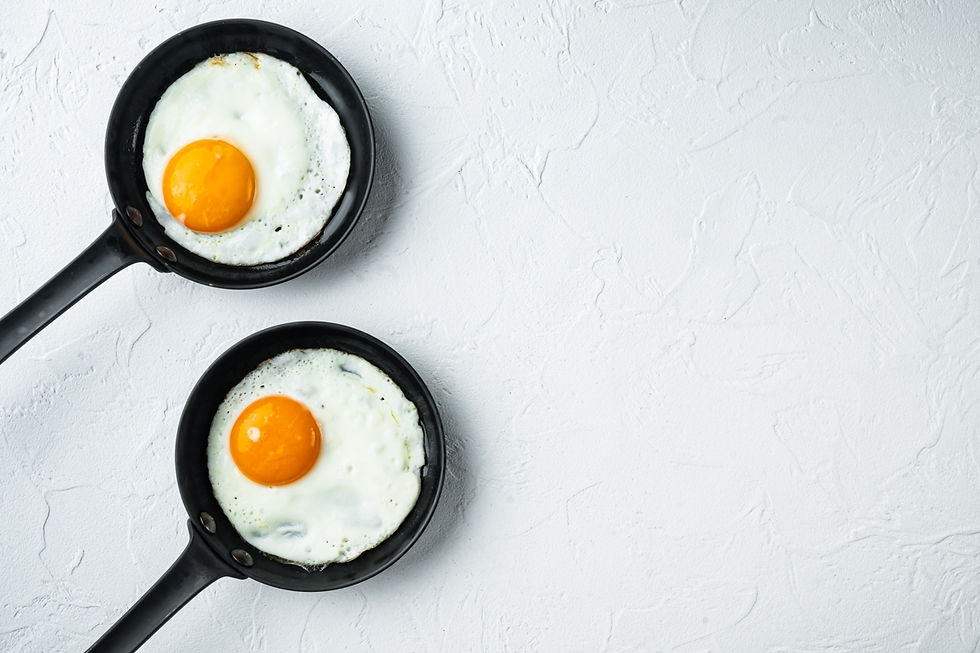Rethinking Cholesterol: The Myths, the Facts, and What Really Matters for Heart Health
- samsilvester1
- Nov 12, 2024
- 3 min read
For years, we’ve heard that cholesterol clogs our arteries and that lowering it through diet or medication is key to avoiding heart disease. However, recent research suggests that the old story of “good” and “bad” cholesterol is outdated. In fact, studies show that those with higher cholesterol levels often live longer, especially when they eat diets rich in healthy fats. So, what’s the truth about cholesterol, and how does it actually impact our health?

The Origins of the Cholesterol Myth
The cholesterol scare began with a study by Ancel Keys in 1953, which suggested a link between high cholesterol and heart disease. This idea has stuck with us for decades, even though 82% of heart attacks are not directly related to high cholesterol. Instead, they’re more often associated with factors like smoking, excessive alcohol consumption, inactivity, obesity, and a high-sugar, low-fibre diet.
Cholesterol Is Vital for Our Health
Cholesterol isn’t something we should be trying to eliminate. It’s a crucial component of our bodies, supporting hormone production, brain health, vitamin D synthesis, and even heart health through CoQ10. Total avoidance of dietary cholesterol could do more harm than good.
The Different Types of Cholesterol – It’s All About the Carriers
Cholesterol and fats travel through the bloodstream in the form of lipoproteins. The most well-known types are:
LDL (Low-Density Lipoprotein): Transports fats from the liver to cells.
HDL (High-Density Lipoprotein): Returns fats from the body’s tissues to the liver for processing.
VLDL (Very Low-Density Lipoprotein): Small LDL particles that can lodge in artery walls, creating plaque. This plaque can build up and eventually rupture, causing heart events.
The size and quality of these particles matter more than their sheer quantity. Small, dense particles of LDL (like VLDL) are more likely to cause issues than larger, more buoyant particles. Therefore, it’s not just about having LDL in your bloodstream but about what type.
Sugar, Not Fat, Is the Real Enemy
Contrary to popular belief, it’s excessive sugar – not fat – that contributes to high levels of dangerous cholesterol particles and triglycerides. When we consume too many carbs, particularly refined sugars, we flood the bloodstream with triglycerides, which can increase LDL. Physical activity helps use up blood sugar, but a sedentary lifestyle can lead to insulin resistance. Over time, high blood sugar levels inflame the artery linings and contribute to plaque formation.
The biggest culprits? Processed sugars, high-fructose corn syrup, and sugary drinks.
The Liver: Your Cholesterol Regulator
The liver plays a key role in managing cholesterol levels by producing bile, which helps eliminate excess cholesterol from the body. If liver function is impaired, cholesterol levels may rise. Eating high-fibre foods, such as oats, pulses, and vegetables, can support the liver’s role in maintaining healthy cholesterol levels.
The Real Problem with Cholesterol: Oxidation
When good fats were replaced by processed vegetable oils and margarine, a new problem emerged: oxidized cholesterol. This “damaged” cholesterol is more likely to clog arteries, especially when combined with lifestyle factors like smoking, a high-sugar diet, and inflammation. Consuming antioxidants from fruits and vegetables can counteract oxidation, reducing harmful effects.
Cholesterol Naturally Increases with Age
Cholesterol tends to rise with age, particularly after menopause, and this increase is normal and generally not a cause for concern. Instead of focusing on reducing cholesterol, aim to adopt healthier lifestyle habits – such as limiting sugar, reducing processed foods, and exercising regularly.
Healthy Fats to Include in Your Diet
While saturated fats from cream and fatty meats can be consumed in moderation, certain fats are particularly beneficial for cholesterol levels:
Oily fish: Salmon, sardines, and mackerel
Walnuts, flax, and chia seeds: Excellent sources of omega-3s
Cold-pressed flax and walnut oils: Healthy fats that support heart health

Healthy fats like oily fish
Bottom Line: Focus on What Really Matters
It's time to rethink Cholesterol. Rather than fixating on cholesterol numbers, pay attention to lifestyle factors that drive heart disease, such as inflammation, oxidation, and insulin resistance. By reducing sugar intake, eating healthy fats, and staying active, you’re making the most impactful changes to protect your heart health.



Comments